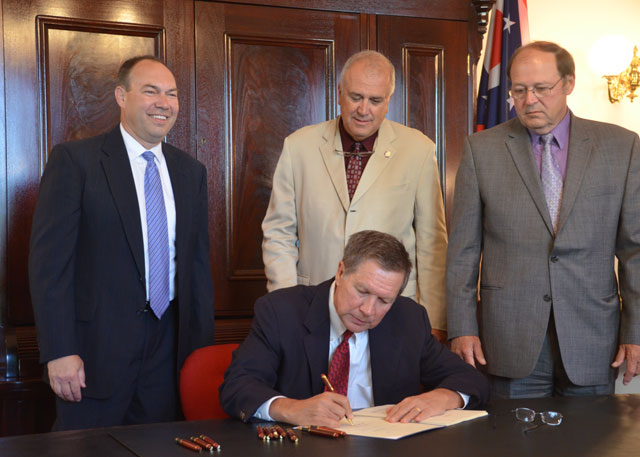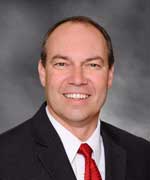
As Gov. John Kasich signs Sub. S.B. 150, the bill’s sponsors and ODA director look on. L-R standing: Sen. Bob Peterson, Sen. Cliff Hite, ODA Director David Daniels. Photo: Ron Sylvester, OFU.
Substitute S.B. 150 is the legislation which mandates Ohio Dept. of Agriculture certification for most farmers and others who apply chemical fertilizers. ODA officials have said that it will take until 2017 before most farmers in Ohio are affected by the new regulation. The bill was originated through work by Senators Cliff Hite and Bob Peterson as well as ODA, Ohio EPA and the Ohio Dept. of Natural Resources in reaction to phosphorous overloads in the Lake Erie watershed and other waters in the state. OFU took a neutral stance on the bill after legislators removed manure from the state’s legal definition of “fertilizer” and as part of the definition of “agricultural pollution.”



